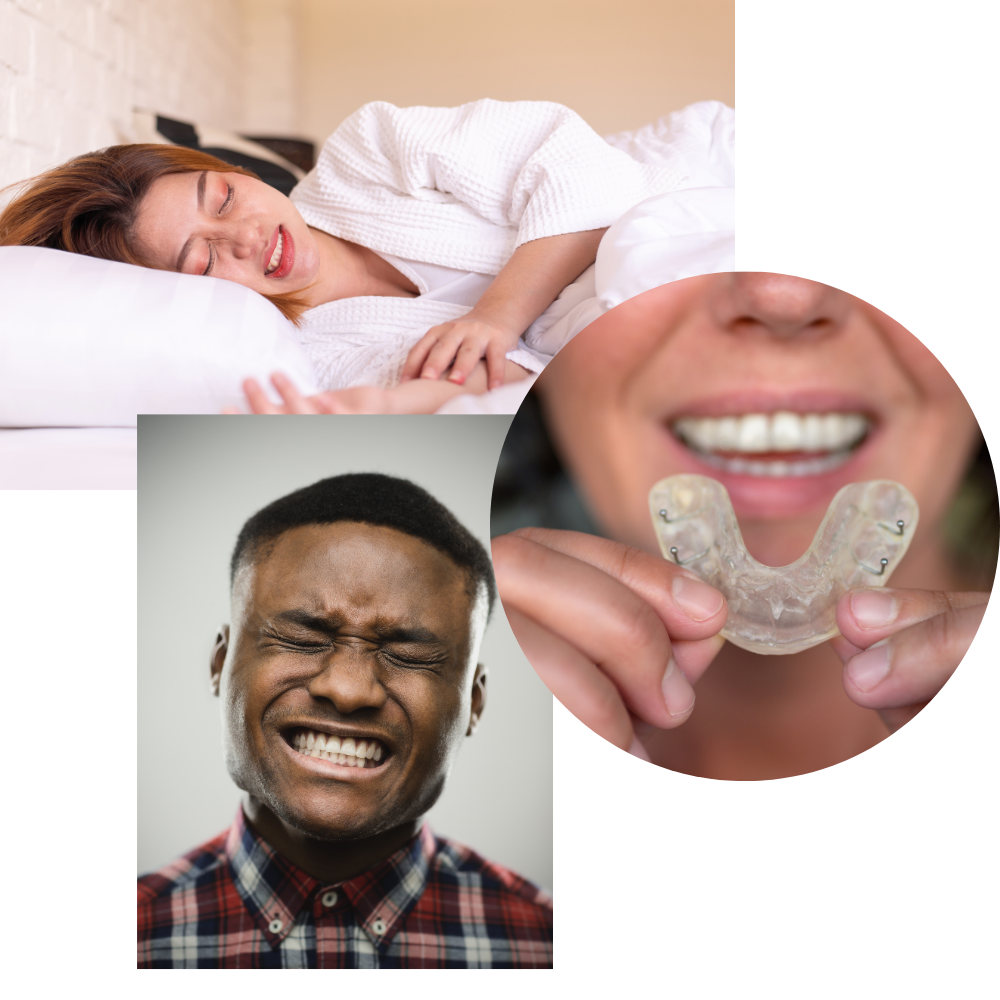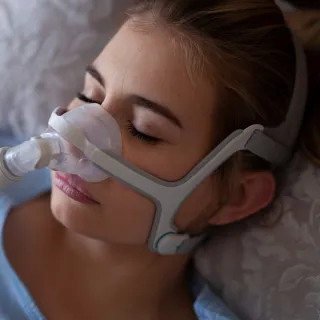Bruxism
Do you often wake up with a sore jaw or a headache? Do your teeth feel sensitive or look worn down? You might be experiencing bruxism, a condition characterized by teeth grinding or clenching. We’re here to help our patients understand this common yet often overlooked condition. Read below to learn about its causes, symptoms, and available treatment options.
What Is Bruxism?
Bruxism is the medical term for grinding or clenching your teeth. It can occur during the day (awake bruxism) or at night (sleep bruxism). While occasional teeth grinding may not cause significant harm, chronic bruxism can lead to serious oral health problems. Bruxism can result from a variety of factors, often unique to each individual:
Stress or Anxiety: Emotional stress or high levels of anxiety are common triggers for teeth grinding. (Dr. Birch noticed a significant rise in bruxism during the Covid-19 pandemic.)
Sleep Disorders: Conditions like sleep apnea are often linked to sleep bruxism.
Bite Issues: An uneven bite or misaligned teeth can contribute to bruxism.
Lifestyle Factors: Excessive caffeine or alcohol consumption, as well as smoking, may increase the risk of bruxism.
Medications: Certain medications, such as antidepressants, have been associated with teeth grinding.


Symptoms of Bruxism
Jaw Pain or Soreness: Persistent discomfort in the jaw, especially upon waking.
Headaches: Morning headaches, particularly around the temples, are a common symptom.
Tooth Sensitivity: Increased sensitivity to hot, cold, or sweet foods.
Worn or Flattened Teeth: Visible wear or damage to the teeth, including chips or fractures.
Ear Pain: Bruxism can sometimes cause pain that feels like an earache.
Disturbed Sleep: If grinding is loud enough, it may wake a sleeping partner.
Treatment Options For Bruxism
Custom Night Guards
A professionally fitted night guard protects your teeth from grinding during sleep.

Stress Management Techniques
Relaxation exercises, counseling, or stress-relief practices may help reduce grinding triggered by stress or anxiety

Dental Correction
If an uneven bite is contributing to bruxism, dental procedures like reshaping or orthodontics may be recommended.

Lifestyle Changes
Reducing caffeine and alcohol intake and quitting smoking can lower the risk of bruxism.

Treating Sleep Disorders
Addressing underlying conditions like sleep apnea can alleviate sleep bruxism.

If you notice symptoms like jaw pain, tooth wear, or headaches, it’s essential to seek professional care. Untreated bruxism can lead to serious issues, including tooth loss, TMJ disorders, and chronic pain.
Preventing bruxism often begins with good oral care and stress management. Regular check-ups at Aaron Birch Family Dental allow us to monitor your oral health and identify early signs of bruxism before they become more severe.
We're Here To Help!
We’re committed to helping our Grand Junction community achieve optimal oral health. If you’re concerned about bruxism, contact us today to schedule an appointment. Together, we’ll create a personalized plan to protect your teeth and maintain a healthy, pain-free smile.

All Rights Reserved, 2024


Facebook
Instagram